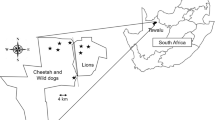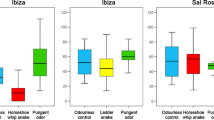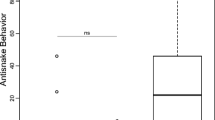Abstract.
Many prey organisms respond to predator scent by shifting behaviour. These alterations to behaviour are often assumed to increase an animal's chances of evading predators. Responsiveness to predator scents is therefore believed to ultimately increase a prey's chances of surviving encounters with predators. This notion is widely accepted among behavioural ecologists but has rarely been empirically tested. I staged encounters between adult snakes (Demansia psammophis) and pairs of unrestrained adult lizards (Lampropholis guichenoti) that responded strongly to snake predator scent ("responsive") or weakly to snake predator scent ("non-responsive"). Responsive lizards decreased activity and mobility during the staged encounters with snake predators. In turn this shift in behaviour decreased the chances that snakes detected responsive lizards. Since snakes almost always captured lizards that were detected, responding strongly to predator scent decreased a lizard's chances of being captured by predators. This finding is the first experimental demonstration in any terrestrial animal that responsiveness to predator scents can function to increase survival probability.
Similar content being viewed by others
Author information
Authors and Affiliations
Additional information
Electronic Publication
Rights and permissions
About this article
Cite this article
Downes, S.J. Does responsiveness to predator scents affect lizard survivorship?. Behav Ecol Sociobiol 52, 38–42 (2002). https://doi.org/10.1007/s00265-002-0477-z
Received:
Revised:
Accepted:
Issue Date:
DOI: https://doi.org/10.1007/s00265-002-0477-z




